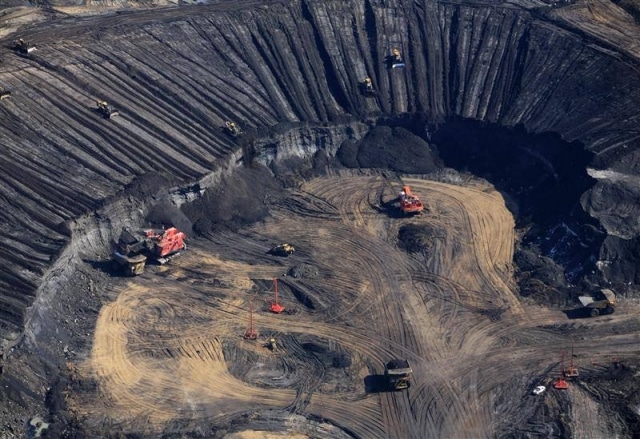Last month, a doctor from Northern Alberta asked a group of U.S. Senators to “keep up the pressure” on the Canadian government about an “ongoing tragedy” he has witnessed firsthand: a health crisis provoked by tar sands development.
Dr. John O’Connor doesn’t just claim that the Canadian government is willfully ignoring the impacts of the tar sands on the environment and human health—drastically higher incidence of some rare cancers linked to contaminants released into the air and water by tar sands development, for instance—he claims that in their blind rush to make Canada an energy superpower, Canadian offiicals have been deliberately misleading the public.
O’Connor did not mince words. As the Vancouver Observer reported:
[O’Connor] sighted [sic] statistics for rare cancers – of the bile duct for example – that have shot up 400 times for what is considered normal for a tiny community, such as Fort Chipewyan – which is downstream, to the north of the oil sands.
“These are published, peer-reviewed studies that indicate that the government of Alberta and Canada have been lying, misrepresenting the impact of industry on the environment,” said O’Connor.
The Alberta government has long denied cancer links with the province’s multi-billion-dollar crown energy jewel. It states on its website that there is “insufficient evidence to link the incidence of cancer in Fort Chipewyan to oil sands operations” and rates of cancer are “within the expected range.”
O’Connor finds that hard to believe.
“All of the scientific studies that have accumulated, it’s almost like they don’t exist,” he said.
Ah yes, the old “there is insufficient evidence” defense, eh Canada? Hmm, where have I heard that before?
A study released by UC Irvine and University of Michigan last October found that communities downwind of Alberta’s tar sands, oil, and gas production facilities had contaminants such as known carcinogens 1,3-butadiene and benzene, as well as other airborne pollutants, in their air at higher concentrations than in some of the most polluted cities in the world. At the same time, medical records show that men in those communities have been experiencing correspondingly higher levels of cancers like Leukaemia and non-Hodgkin’s lymphoma over the past 10 years.
While the study’s authors can’t prove conclusively that the air pollution they documented is directly causing the cancer, UC Irvine chemist Isobel Simpson, lead author of the paper, does say, “We’re seeing elevated levels of carcinogens and other gases in the same area where we’re seeing excess cancers known to be caused by these chemicals.”
After meeting with O’Connor, Senators Barbara Boxer (D-CA) and Sheldon Whitehouse (D-RI) criticized the State Department for not mentioning impacts on human health in its environmental review of Keystone XL, the proposed pipeline that would bring tar sands oil from Alberta down to refineries in Texas.
“As tar sands oil flows to our gulf coast refineries it will increase toxic pollution that already plagues communities like Port Arthur Texas, which is near many refineries that will process tar sands,” Boxer said.
So if the health effects of tar sands are so dire, why aren’t more health professionals in Canada coming forward to speak out about what they’ve seen? According to O’Connor, doctors fear retaliation from the Canadian government and oil industry “if they dared to speak ‘health issues and tar sands’ in the same sentence.”
Subscribe to our newsletter
Stay up to date with DeSmog news and alerts







